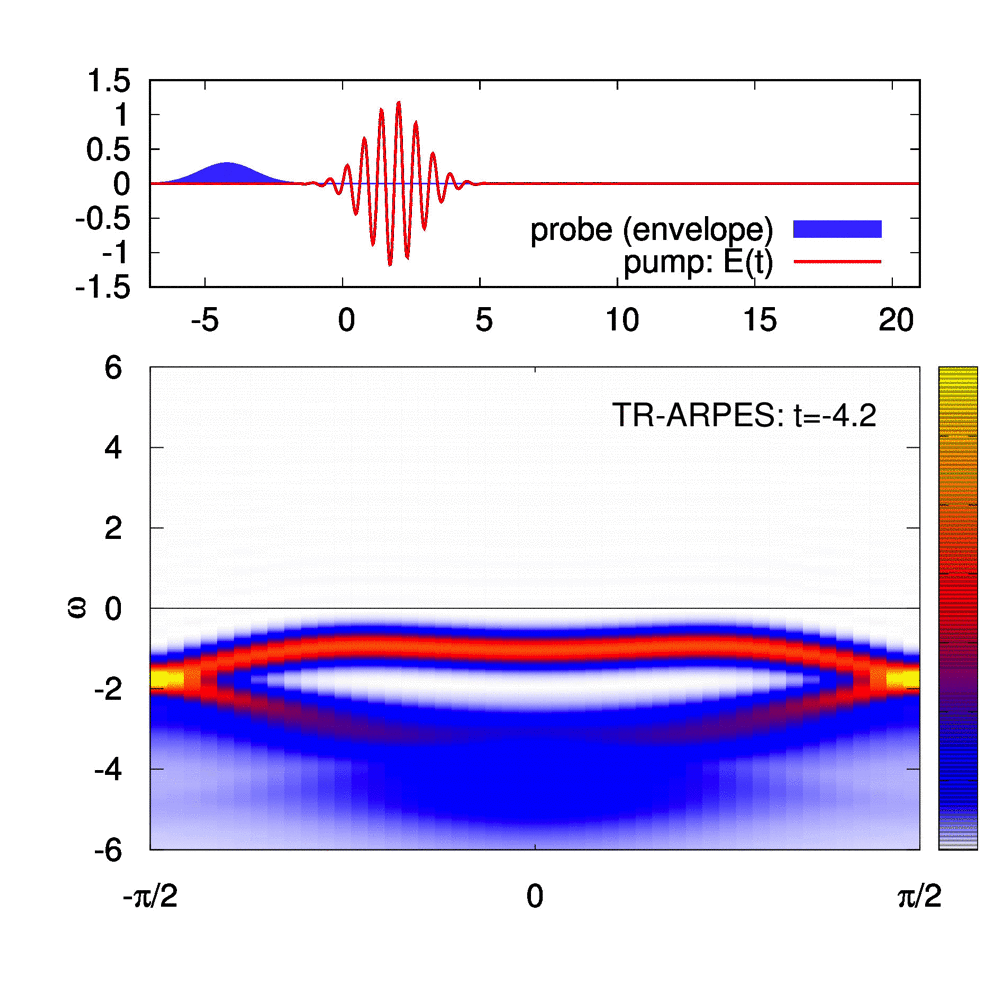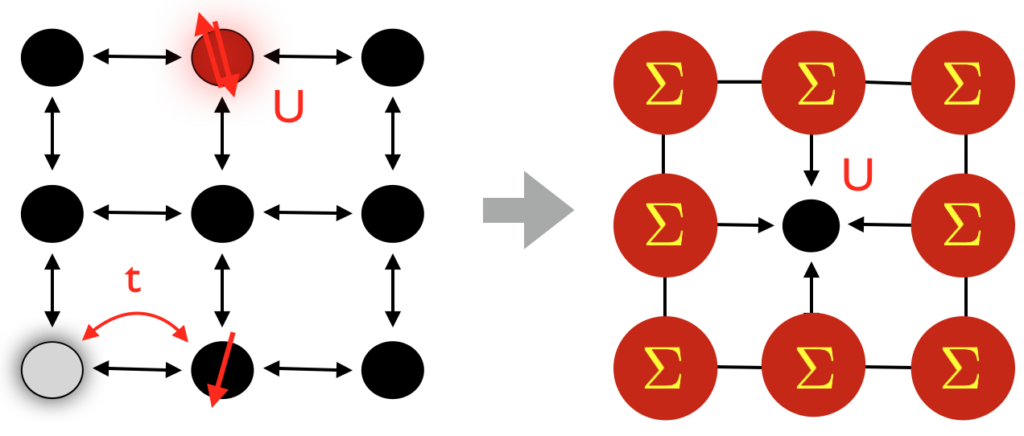Research
Many-body systems out of equilibrium:
Using ultra-fast pump-probe experiments, one can follow the evolution of condensed matter systems and complex molecules with a time-resolution of femtoseconds, and thus probe the interaction of various degrees of freedom in the solid on the relevant microscopic timescale. At the same time, the observation of light-induced superconductivity or hidden phases shows that there is a manifold of intriguing non-equilibrium states in addition to the already rich equilibrium phase diagrams of quantum materials.
We develop theoretical approaches to study the non-equilibrium dynamics of complex quantum systems, both on artificial platforms and in real materials.

The movie shows a simulated time-resolved photoemission experiment in a system with an exciton condensate (a ground-state BEC of excitons). The system is excited with an electric field pulse E(t), and the spectrum is recorded with a probe pulse at different delays with respect to the pump (upper panel). One observes a filling of the conduction bands is followed by a closing of the gap (insulator-to-metal transition) due to the non-thermal melting of the exciton condensate. See
Denis Golez, Philipp Werner, and Martin Eckstein, Phys. Rev. B 94, 035121 (2016).
Topics include:
- Fundamental aspects of many-body dynamics (thermalization, the existence of long-lived non-thermal states, dynamical phase transitions)
- Transient or metastable non-thermal symmetry broken orders in complex quantum systems, hidden states, photo-induced metal-insulator transitions
- Understanding ultra-fast relaxation processes in solids
- Protocols to design control novel states out of equilibrium, on artificial platforms and in real materials
- Floquet engineering, i.e., the use of time-periodic perturbations to design given Hamiltonians
- Quantum systems in ultra-strong electric fields
- Strongly coupled light-matter hybrid states (Condensed matter cavity QED)
Theory of many particle systems: From artificial models to real materials
Transition metal oxides, dichalcogenides, and organic crystals provide platforms on which complex properties of matter can potentially be designed on demand. Of particular interest in this context are strongly correlated systems, where the collective behavior of many particles gives rise to an enormous response to external perturbations.

Topics include:
- Non-equilibrium dynamical mean-field theory and beyond
- Solving the quantum impurity problem: From numerical approaches to quantum simulation
- Quantum kinetic approaches and non-equilibrium Green’s functions
- Towards an ab-initio theory of quantum materials out of equilibrium